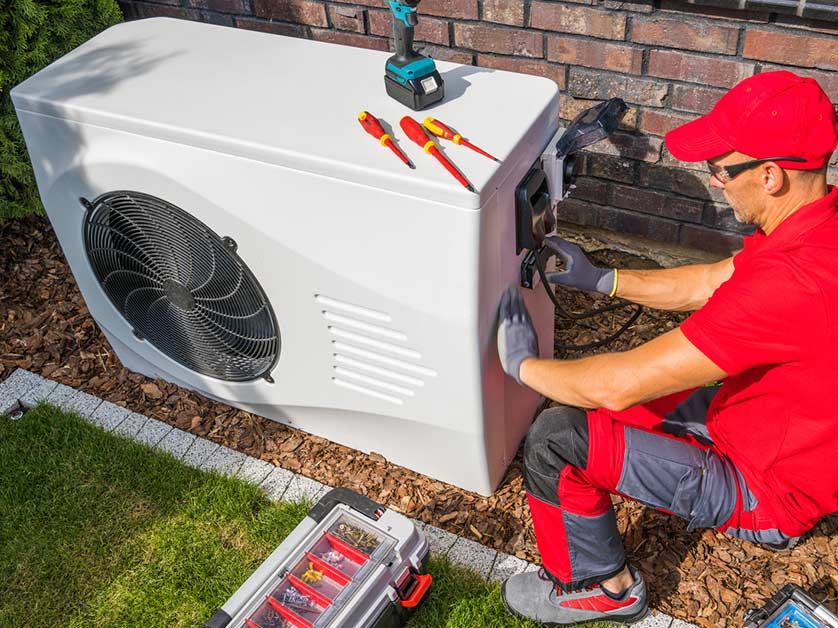Heat pumps are crucial for sustainable and cost-effective home heating and cooling. In this blog post, we'll explore how heat pumps work, their various types, and their benefits to your home.
Understanding the Basics of Heat Pumps
At its core, a heat pump transfers heat from one place to another. Unlike traditional heating systems that burn fuel or rely on electrical resistance to produce warmth, a heat pump simply moves existing heat, making it an exceptionally energy-efficient solution for heating and cooling your home.
The Mechanism Behind Heat Pumps
The heat pump begins in the outdoor unit, which draws air across an evaporator coil filled with a refrigerant. This refrigerant absorbs heat from the air, transforming it from a liquid to a gas. It then moves through a compressor, where its temperature is increased significantly. The hot refrigerant gas is then transferred to the indoor unit's condenser. Here, it releases heat into your home's air or water system, depending on the configuration (air-to-air or air-to-water). As the refrigerant cools, it returns to a liquid state and passes through an expansion valve, lowering its pressure and temperature to restart the cycle.
Types of Heat Pumps
Various heat pump types cater to different environmental conditions and home heating needs. Here are some of them:
Air-Source Heat Pumps: They extract heat from outdoor air.
Ground-Source (Geothermal) Heat Pumps: They use the earth's stable temperature to heat and cool. They are highly efficient but typically require a higher upfront installation cost.
Water-Source Heat Pumps: They utilize heat from nearby water sources and offer excellent efficiency in suitable locations.
Heat Pumps' Important Components
Key components that make up a heat pump include:
Evaporator Coil: Absorbs heat from the air, ground, or water.
Compressor: Increases the temperature of the refrigerant.
Condenser Coil: Releases heat to the indoor system.
Expansion Valve: Reduces refrigerant pressure and cools it for the next cycle.
Efficiency and Environmental Impact
Heat pumps are known for their high efficiency and environmental advantages. They can be up to four times more efficient than traditional heating systems, significantly lowering energy costs. By utilizing renewable heat sources (air, ground, or water) and electricity, heat pumps reduce reliance on fossil fuels, helping to combat climate change and decrease carbon footprints.
Is a Heat Pump Right for Your Home?
The suitability of a heat pump depends on factors like insulation and system sizing. Proper installation and an appropriately sized unit ensure maximum efficiency, improved comfort, and long-term savings.
Electrification and Climate Action at Home
Investing in a heat pump is more than a financial decision; it's a step toward a more sustainable future. By moving away from fossil fuel-dependent systems, you contribute to the global shift toward electrification and environmental stewardship.
D&J Heating and Air, LLC offers comprehensive heating services to homeowners in Greenville, Spartanburg, and Anderson, SC. We're here to guide you through your HVAC options and ensure a seamless service. Call us at (864) 562-8396 or fill out our online form to request an estimate.

